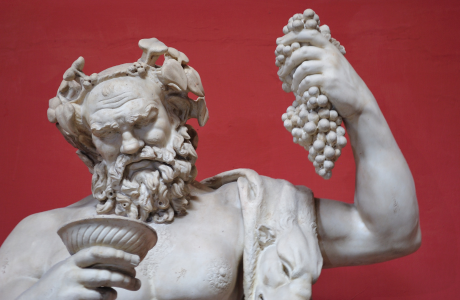With its unique blend of beauty, poetry, and paradox, Ecclesiastes stands out in the biblical canon. It challenges some traditional views, leading us to question: How can we grasp the essence of Ecclesiastes, its purpose, and its message?
Ecclesiastes is a book that is easily misunderstood if you don’t realise why it was written. The early church debated removing it from the Bible because it contained untrue statements, but I’m glad they did include it. Like Job, Ecclesiastes is a poetic book that refuses to dodge the hard questions and doesn’t always provide easy answers. In that way, this book reflects real life.
Author
Ecclesiastes begins with “the words of the Teacher, son of David, king in Jerusalem.” The Teacher is the Hebrew Qoheleth (ko-hell-et), meaning “a collector of sentences or students or wisdom sayings, or “a preacher.” Qoheleth is found seven times in Ecclesiastes and is the Jewish name for this book. He identifies himself as king over Israel in Jerusalem—probably Solomon, a man known for his wisdom (Ecclesiastes 1:13, 16-18; 12:9-10).
While its actual author is unknown, the book is primarily considered the work of King Solomon and was possibly written sometime before he died in 931 BC. If the author was not Solomon, the anonymous writer wanted us to think it was Solomon.
Themes
Ecclesiastes is a quest to find the meaning of life or meaning in life. Qoheleth finds life meaningless—a word repeated 33 times in this little book: “Meaningless! Meaningless!” says the Teacher. “Utterly meaningless! Everything is meaningless.” “I have seen everything done under the sun; all are meaningless, chasing after the wind.”
Qoheleth identifies this problem and then attempts to find answers: How can I find meaning in my life? The book then documents his experiments with various things to find meaning.
He adopts a scientific approach, starting with a hypothesis: everything is meaningless. Is this true? How can I find meaning in life? Is this possible?
We must understand this about Ecclesiastes to avoid quoting isolated verses that contradict the rest of scripture. An excellent example is Ecclesiastes 9:5: “For the living know that they will die, but the dead know nothing; they have no further reward, and even their name is forgotten.” The first phrase is accurate—we all know we’ll die—but the rest contradicts scripture’s teaching on resurrection, judgement, legacy, and eternal life.
From Chapter 2 onwards, Qoheleth documents his various experiments to discover meaning in life, the first three of which are explored in Chapter two:
Experiment 1: Pleasure
In verses one to three, he writes: “Come now, I will test you with pleasure to find out what is good.” But that also proved meaningless. “Laughter,” I said, “is madness. And what does pleasure accomplish?” I tried cheering myself with wine and embracing folly—my mind still guiding me with wisdom. I wanted to see what was good for people to do under the heavens during the few days of their lives.”
And then verse ten: “I denied myself nothing my eyes desired; I refused my heart no pleasure.” The result? Everything is meaningless.
Experiment 2: Wisdom and Foolishness
“Wisdom is better than folly…but I came to realise that the same fate overtakes them both…The fate of the fool will overtake me also. What, then, do I gain by being wise?” Everything is meaningless.
Experiment 3: Hard Work
“My heart began to despair over all my toilsome labour under the sun. For a person to labour with wisdom, knowledge, and skill; they must leave all their own to another who has not toiled for it.” (v. 20-21). What do people get for all the toil and anxious striving with which they labour under the sun? All their days, their work is grief and pain; even at night, their minds do not rest. This, too, is meaningless.” (v. 22-23).
Experiment 4: Fatalism
Qoheleth begins chapter three with a well-known and much-loved poem (v. 2-8): “There is a time for everything and a season for every activity under the heavens: a time to be born and a time to die…” It’s a stunning song, but the message is simple: whatever will be will be, so resign yourself to fate.
Solomon ends chapter 3 with a fatalistic comparison of humans with animals and concludes that there is no difference between them: “Humans have no advantage over animals. Everything is meaningless. All go to the same place; all come from dust, and to dust all return.”
Chapter 4 continues the theme of fatalism as Qoheleth works himself into a pessimistic state over oppression and loneliness: “I declared that the dead, who had already died, are happier than the living, who are still alive. But better than both is the one who has never been born.”
Experiment 5: Materialism
In chapters 5 and 6, Qoheleth explores business, high finance, capitalism, and investing, concluding: “Whoever loves money never has enough; whoever loves wealth is always dissatisfied with their income. This, too, is meaningless.”
He continues, “Everyone comes naked from their mother’s womb, and as everyone comes, so they depart. They take nothing from their toil that they can carry in their hands. This, too, is a grievous evil: As everyone comes, so they depart, and what do they gain since they toil for the wind?
The truth of those words resonates through the centuries. Ancient words that are just as accurate today—materialism is meaningless. When John D. Rockefeller died, one man was curious about how much he left behind. Determined to find out, he set up an appointment with one of Rockefeller’s highest aides and asked how much Rockefeller left. The aide answered, “All of it, sir.”
Experiment 6: Knowledge and Integrity
From chapters 7 to 10, Qoheleth searches for meaning in being wise and upright. These chapters contain many pearls of wisdom and strange assertions, including, “I found one upright man among a thousand, but not one upright woman among them all.” (7:28). Those words are untrue.
Ultimately, Qoheleth says it’s good to be wise and honest rather than foolish and corrupt, but eventually, we all die. When we’re dead, we know and receive nothing and are all forgotten. And so, the best you can do is “Enjoy life…all the days of this meaningless life that God has given you under the sun—all your meaningless days.”
Ecclesiastes shows what human life is like when we seek meaning in “things” and not in the creator.
Qoheleth’s Conclusion
Remember his hypothesis: Everything is meaningless. And his question: How can I find meaning in life? The answer is yes, as long as you “Remember your Creator in the days of your youth. Remember him—before the silver cord is severed, and the golden bowl is broken; before the pitcher is shattered at the spring, and the wheel is broken at the well, and the dust returns to the ground it came from, and the spirit returns to God who gave it.”
These verses (12:6-7) poetically describe the process of dying from a 3000-year-old perspective:
“The Silver cord is severed” (loosened) refers to the white spinal fluid.
“The broken golden bowl” signifies the skull, which is precious like gold and contains the human brain.
“Before the pitcher is shattered at the spring” denotes the right ventricle of the heart that, at death, ceases to pump blood around the body.
“The wheel is broken at the well” is the heart’s left ventricle. The wheel is broken, the pulse stops, the blood ceases to circulate, and death follows.
Qoheleth summarises: “Now, all has been heard; here is the conclusion of the matter: Fear God and keep his commandments, for this is the duty of all mankind. God will bring every deed into judgment, including every hidden thing, whether good or evil.”
Ecclesiastes declares: Life is a mixture of good times and bad. The pleasures of life cannot offer lasting satisfaction, but they can be enjoyed as gifts from God. Ultimately, everything comes from God’s hand. Meaning is found through a respectful relationship with our creator. And whatever we do in life, remember his commandments, the greatest of which Jesus said was to love God and our neighbour.
Ecclesiastes shows what human life is like when we seek meaning in “things” rather than the creator. Jesus agreed.













